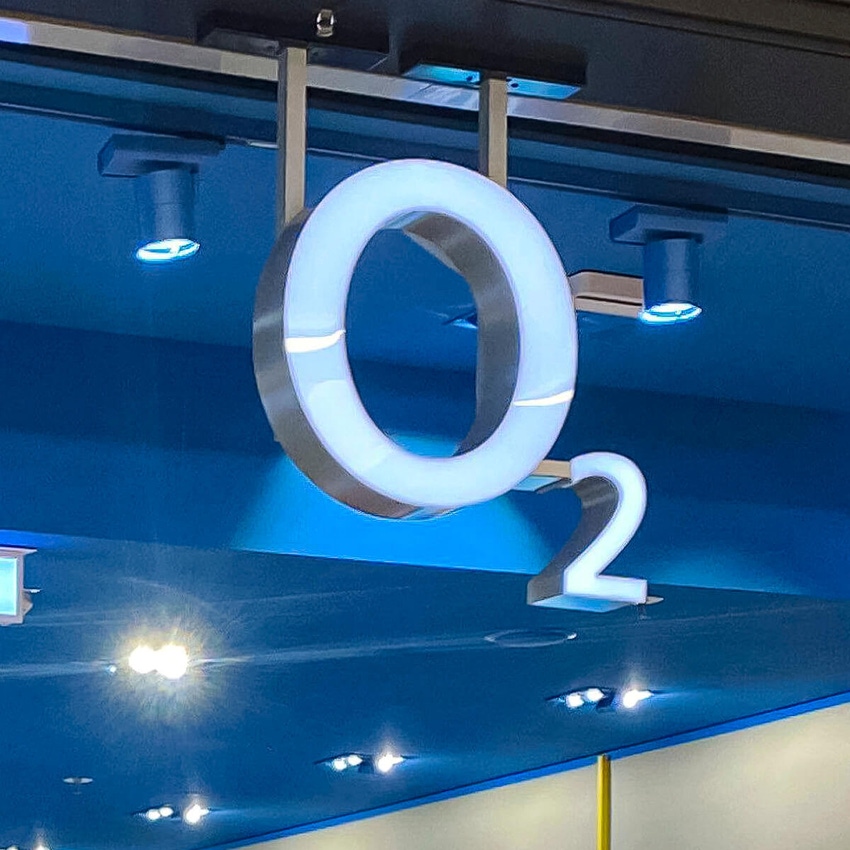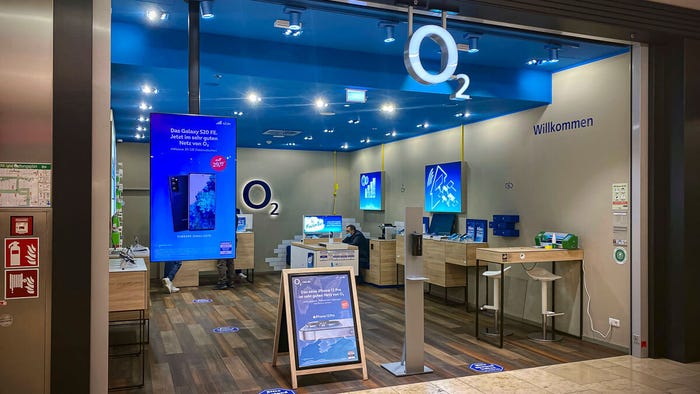
Telefónica Deutschland (O2 Germany) hailed what it regarded as a strong performance in the third quarter (Q3) of 2021 and raised its core earnings guidance again for the full year.
The German operator is now expecting adjusted operating income before depreciation and amortization (OIBDA) growth in the low mid-single-digit percentage range for fiscal year 2021. Adjusted OIBDA increased by 3% to €613 million (US$710 million) in the third quarter.
Markus Rolle, CFO of Telefónica Deutschland, nevertheless indicated that guidance remains cautious "to account for the general uncertainties. We still think that the economy is very robust in Germany, but we still do not know how it will develop further," particularly with regard to roaming from outside the European Union.
Figure 1:  O2 Telefonica shop in Munich, Germany.
O2 Telefonica shop in Munich, Germany.
(dpa picture alliance / Alamy Stock Photo)
He also noted that Telefónica Deutschland wants to retain the flexibility to invest in the market.
Markus Haas, CEO of Telefónica Deutschland, appeared pretty pleased on the whole with the operator’s performance. He said Q3 revenue "grew on the back of sustained operational and financial momentum," rising 5.1% year-on-year to €1.96 billion ($2.27 billion), "mainly driven by the accelerating [mobile service revenue] trends."
Mobile service revenue increased by 4.4% to €1.42 billion ($1.64 billion) while fixed revenue rose 2.8% to €203 million ($235 million), mainly driven by growth in the VDSL customer base.
Other income totalled €294 million ($340.6 million) in Q3, supported by a capital gain in the amount of €262 million ($303.5 million) related to the spin-off and sale of the final tranche of around 4,000 mobile sites to tower company Telxius. As a result, profit for the period amounted to €227 million ($263 million).
Capital expenditure (capex) was also up at €303 million ($351 million), with the peak expected in the fourth quarter. Telefónica Deutschland noted that capex comes with backend-loaded annual phasing in 2021 within the context of its network-focused ‘investment for growth’ program.
"One year after its start, the O2 5G network is live in around 115 cities and Telefónica Deutschland is well on track to achieve its target of 30% population coverage in Germany by year end 2021 and nationwide coverage by 2025. As a result of more efficient capex spend, the expected capex to sales ratio is reduced to <17-18% in FY2021," the operator said.
Howdy partner
Telefónica Deutschland was also able to reveal that it has secured a deal with mobile virtual network operator (MVNO) Lebara Mobile, replacing former wholesale partner Deutsche Telekom.
Haas said the exclusive mid-term partnership is expected to last at least four years from early 2022, with another year on top. The wholesale agreement is expected to have a full impact on revenue from 2023.
In response to an analyst estimate that the Lebara contract could bring in around 2 million subscribers and be worth potentially €50 million ($57 million) to €100 million ($115.8 million) in annualized partner revenues, Haas conceded that the deal would be in this ballpark.
Want to know more about 5G? Check out our dedicated 5G content channel here on
Light Reading.
In terms of another wholesale partner, 1&1, Telefónica Deutschland reached a national roaming agreement (NRA) with the fourth entrant in the second quarter of this year. The NRA has an initial contract period of five years, with retroactive effect from July 1, 2020, and can be extended twice: until mid-2029 and up to mid-2034 respectively.
Haas was also asked to clarify his claims that the German market is not heating up, despite recent promotional activity by O2 and its rivals, particularly Vodafone Germany.
"From our perspective, we look at [mobile network portability/MNP], and in some quarters one [operator] gains more than the other. But overall, I think the market is strong enough and still a growing market with second SIM cards, additional hardware and new customers coming in," he said. "Everybody could benefit from a growing market."
Related posts:
— Anne Morris, contributing editor, special to Light Reading
Read more about:
EuropeAbout the Author(s)
You May Also Like











